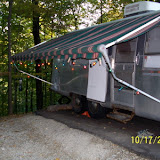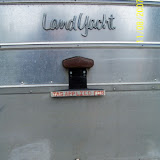After writing some unfocused and rambling thoughts about the series going on at my church, I was asked to condense a piece to be included in a summary/evaluation in this Sunday's bulletin. I submitted these three options. As I got them into smaller and smaller word counts, lost a lot of blather, maybe the focus became a bit more clear:
The first attempt:
Broadway UMC is presenting a series of sermons and activities emphasizing the theme, Make Poverty History. There is even a theme song, written by a lay member, Dave Frauman, and the choir master, Chris Schroeder. We dressed in white, made a big circle out on Triangle Park in the rain, and wore white arm bands.
I have a lot of cognitive dissonance about this series. I hope it provokes a lot of conversation -- like this blog that I am writing. I hope others are finding it provocative in the best way, as motivation to act.
The main idea is that we have been conditioned to think of poverty in a certain way, as another social justice issue against which we are at war, or a disease that is chronic and almost impossible to cure. Our pastors have presented us with the notion that poverty is already history (based upon the words of and about Jesus in the Bible), and that those previously understood as poor are full of abundance.
I am groaning inside – my dissonance is unbearable! How can I say now that poverty is history, when so many people are suffering within a stone’s throw of my own door and from our own sanctuary? I turn on the TV to an update on Darfur, and immediately I am frozen in helplessness and futility. How could I possibly extend my hand to the mother of the starving child and reassure her, “God has ended poverty!” And yet – I must extend my hand, somehow. I cannot bring myself to make the proclamation along with Mike and Rachel. Something in me, the way I think, the way I see it, will have to change before I can make the affirmation.
A proverb from Africa in circulation helps me think about what I can do differently: People living in a village beside a river went to the shore to collect water for their laundry and bathing. A man shouted and pointed upstream to a nearly drowned child coming down toward them, fighting the current, struggling to keep her head above water. Someone threw a rope and pulled her in. Soon, many more people – babies, elders, women, men – followed. The villagers ran and brought more ropes to rescue them. One of the elders, attracted by the commotion, came down to the shore to see what was going on. She asked, “How did these people get here? Is someone throwing them in the river? Are they jumping in? What is happening upstream from us? Send a delegation up the river and find out why these people are drowning.”
This proverb richly illustrates the complex responses to poverty. We can wait downstream, throwing ropes and reviving individuals who are drowning in many different ways. Some, as Mari Evans noted, are drowning in insufficiency: of money, of home, of love, of concern, of heat, of cool, of food, and on and on. In terms of addressing insufficiency, how many ropes, how much CPR, how much money, food, water, electricity, caring, concern, etc., etc., will we need to pile up beside the river to meet the needs?
We can join the delegation heading upstream. We might find many sources forcing people into the river: disappearing jobs, a miserable economy, education systems suffering from a lack of funds, broken down pieces of social and civic infrastructure, violence, apathy, dearth of imagination.
Walter Wink wrote a series of books about “the powers,” prompted by Paul’s letter to the Ephesians (6:12). The powers are the spiritual energy or forces (some would say personified in actual people or demonic beings) within systems and institutions of oppression. The trilogy consists of Naming the Powers, Unmasking the Powers, and Engaging the Powers. As I take my liberty with Wink’s work, making a very complex series very simple, I will note only that these books make very clear that we are embedded within and pressed from without by systems, some of which are evil. Sometimes we unknowingly participate in these forces, and sometimes we benefit from them. Some institutions and systems are broken beyond repair, some are fixable.
To work upstream is, in my opinion, to confront the powers. Although it is hard work and sometimes dangerous, it is eventually the only way to bring about change. As Wink says, “History belongs to the intercessors.”
I think my response to the dissonance provoked by our Make Poverty History series is to join the upstream delegation. Somehow, my gifts and abundance can work through confrontation of the powers. I’ll need to catch up with these upstream travelers. Anyone want to join me?
Second attempt:
I have a lot of cognitive dissonance about the Make Poverty History series. When we had a dinner conversation about it at Troy and John’s house, my one-word response was, “perplexing.” My one word joined several others, “concerning,” “revealing,” “energizing,” “hopeful,” and others.
I am groaning inside – my dissonance is unbearable! How can I say now that poverty is history, when so many people are suffering and dying in poverty within a stone’s throw of my own door and from our own sanctuary? I turn on the TV to an update on Darfur, and immediately I am frozen in helplessness and futility. How could I possibly extend my hand to the mother of the starving child and reassure her, “God has ended poverty!” And yet – I must extend my hand, somehow.
An African proverb helps me think about what I can do differently: People living in a village beside a river went to the shore to collect water for their laundry and bathing. A man shouted and pointed upstream to a nearly drowned child coming down toward them, fighting the current, struggling to keep her head above water. Someone threw a rope and pulled her in. Soon, many more people – babies, elders, women, men – followed. The villagers ran and brought more ropes to rescue them. One of the elders, attracted by the commotion, came down to the shore to see what was going on. She asked, “How did these people get here? Send a delegation up the river and find out why these people are drowning.”
This proverb richly illustrates the complex responses to poverty. We can wait downstream, throwing ropes and reviving individuals who are drowning in poverty. many different ways. Some, as Mari Evans noted, are drowning in insufficiency. How much money, food, water, electricity, caring, concern, etc., etc., will we need to pile up beside the river to meet the needs?
We can join the delegation heading upstream. We might find many sources forcing people into the river: disappearing jobs, a miserable economy, education systems suffering from a lack of funds, corruption in government, broken down pieces of social and civic infrastructure, violence, apathy, dearth of imagination.
I think my response to the dissonance provoked by our Make Poverty History series is to join the upstream delegation. Somehow, my gifts and abundance can work through confrontation of the systems and institutions that make poverty possible, even necessary in some frankly evil ways. I’ll need to catch up with these upstream travelers. Anyone want to join me?
Third attempt:
I am groaning inside – my dissonance is unbearable! How can I say now that poverty is history, when so many people are suffering within a stone’s throw of my own door and from our own sanctuary? I turn on the TV to an update on Darfur, and immediately I am frozen in helplessness and futility. How could I possibly extend my hand to the mother of the starving child and reassure her, “God has ended poverty!” And yet – I must extend my hand, somehow.
An African proverb in circulation helps me think about what I can do differently: People living in a village beside a river went to the shore to collect water for their laundry and bathing. A man shouted and pointed upstream to a nearly drowned child coming down toward them, fighting the current, struggling to keep her head above water. Someone threw a rope and pulled her in. Soon, many more people – babies, elders, women, men – followed. The villagers ran and brought more ropes to rescue them. One of the elders, attracted by the commotion, came down to the shore to see what was going on. She asked, “How did these people get here? Is someone throwing them in the river? Are they jumping in? What is happening upstream from us? Send a delegation up the river and find out why these people are drowning.”
This proverb richly illustrates the complex responses to poverty. We can wait downstream, throwing ropes and reviving individuals who are drowning in poverty. I think some will join the delegation heading upstream, to confront the institutions and systems that make poverty possible. Both are necessary, both are worth doing.
Walter Wink wrote a series of books about “the powers,” prompted by Paul’s letter to the Ephesians (6:12). The powers are the spiritual energy or forces (some would say personified in actual people or demonic beings) within systems and institutions of oppression. To work upstream is to confront the powers. Although it is hard work and sometimes dangerous, it is eventually the only way to bring about enduring change. As Wink says, “History belongs to the intercessors.”
"Oh, the suffering of a writer," she lamented, in her upstairs burrow, fussing over the loss of words
-- and the loss of time she should be spending out on the Airstream, which needs to be ready on Friday!
Subscribe to:
Post Comments (Atom)



No comments:
Post a Comment
Welcome to my blog. I welcome your comments!